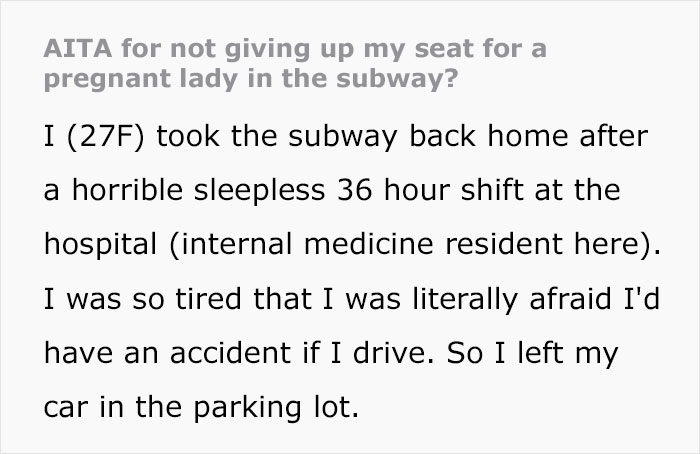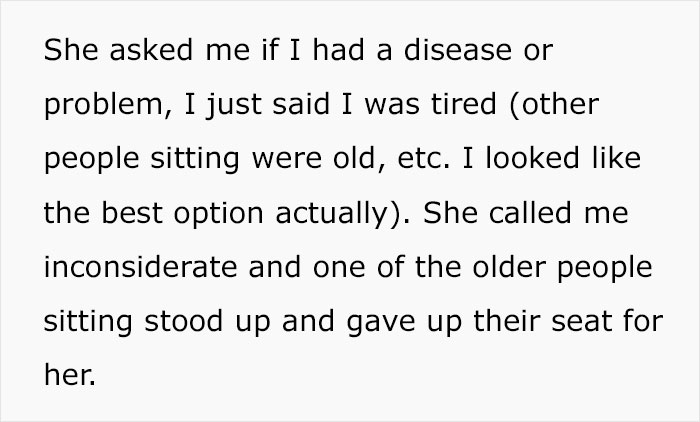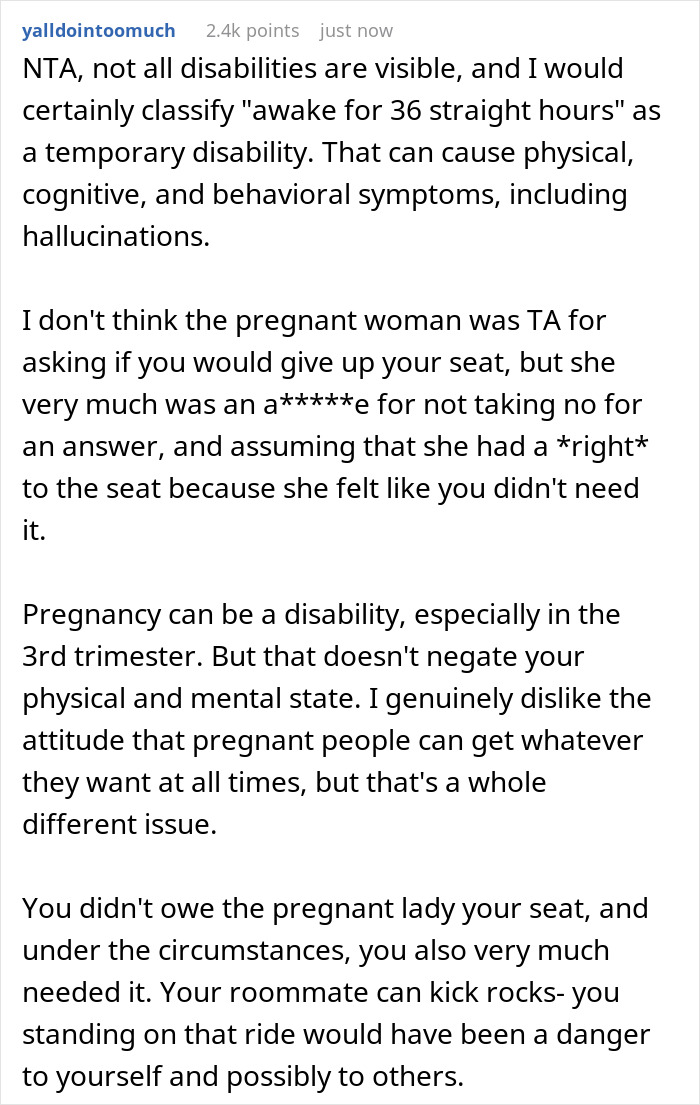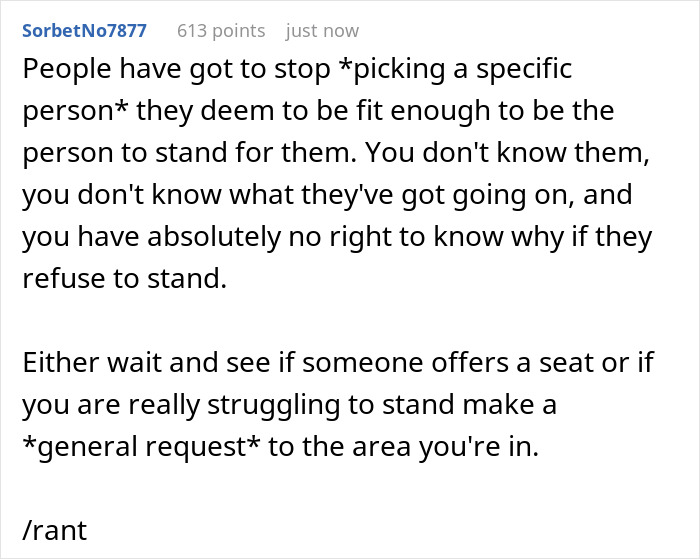Many of us were taught that we need to give up our seats on a bus or a subway to those who need them more. It can be older people, sick people, or pregnant women. But what if you need that seat just as much as they do?
For example, what if you just got out of a long work shift and you’re so tired it’s impossible for you to stand? Well, that’s the exact situation today’s OP found herself in. And the way she handled it wasn’t met with much excitement by people on the subway or by her friend.
More info: Reddit
Should you give up your seat to someone in need if you need that seat badly yourself?

Image credits: Ketut Subiyanto (not the actual photo)
A medical resident was on her way home from a sleepless 36-hour shift when a pregnant woman asked to take her seat on the subway



Image credits: Matheus Viana (not the actual photo)



Image credits: HeftyDrawer7334
The resident refused, justifying it by saying that she was so tired she could not stand, which resulted in the pregnant lady calling her inconsiderate
Today’s OP is an internal medicine resident. Overall, medical residents are already licensed medical doctors who are actively involved in the clinical care of patients. Yet, residency is still a form of training. Only it no longer happens in the classroom, as residents have already graduated. Instead, it is practical training, and the aim is to provide comprehensive practice and knowledge in a chosen specialty. Internal medicine residents, like today’s original poster, focus on the acute and chronic medical care of adults.
Typically, internal medicine residency takes 3 years to finish, and after that, residents can get a board certification in internal medicine. Yet, finishing these 3 years isn’t a very easy task, given the long hours of work residents have to put in. Theoretically, in the United States, medical residents can work up to 80 hours a week, with shifts going longer than 20 hours. Yet, there are talks that some residents work more than they clock in, for instance, 95 hours or even more. Well, that doesn’t sound like a piece of cake, does it?
While we can’t say how many hours in the week the OP worked, we surely know that one shift of hers took 36 sleepless hours. No wonder she was so tired after it — who wouldn’t be? And imagine driving while being this tired. Well, she couldn’t, so she decided to take the subway.
And it was a very logical choice, as there are some who claim that driving while tired is as dangerous as drunk driving. Fatigue leads a person to have slower reactions and awareness, which can make it difficult to properly control a car. For instance, in the United Kingdom, around 10-20% of all car crashes are caused by tired drivers.

Image credits: Negative Space (not the actual photo)
When the woman got on the subway, it was packed, but she was lucky to get a seat. Unsurprisingly, during the trip, she dozed off a couple of times. But then, she noticed a pregnant lady standing right in front of her. She asked the OP if she would give up her seat. But the medical resident refused. Her justification was that she was so tired she could not stand.
This led to the pregnant woman calling the author inconsiderate, and an old person gave her a seat. Interestingly, later, the original poster’s roommate basically called her the same thing. Since the woman wasn’t sure she was such a jerk here, she went to Reddit to see what people there thought.
The majority of the people decided that the author wasn’t a jerk. After all, working sleeplessly for 36 hours straight makes a person fatigued. In fact, some netizens pronounced the long working hours in the hospital as the main antagonist of the story.
Yet, a few people seemed to understand where the pregnant lady was coming from – pregnancy, especially in the 3rd trimester, can be hard. Still, it doesn’t change the fact that a young person on the subway shouldn’t automatically give up her seat. Even if they aren’t tired from work like the OP, they might have some invisible disability. These kinds of illnesses can make a person suffer from chronic pain, cognitive dysfunction, and many other symptoms.
So, basically, what we can take from this story is that we should all strive to be more compassionate to each other and understand that there are sometimes underlying contexts for people’s behavior that can’t be understood just by taking a look at them.
“I think the jerk here is the hospital”: People in the comments thought that the woman’s refusal to give up the seat was justified






Image credits: Pixabay (not the actual photo)













